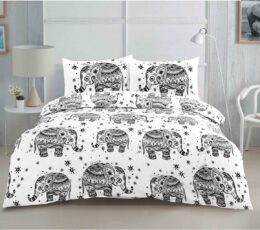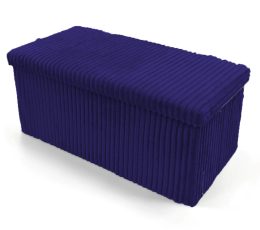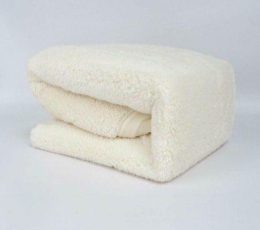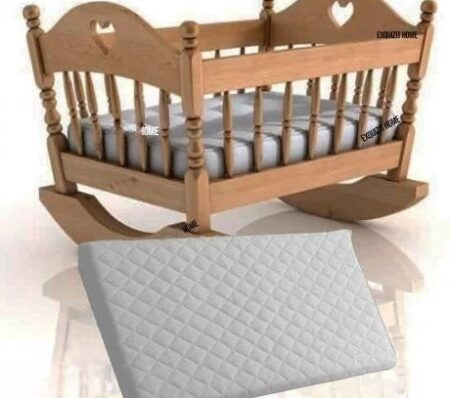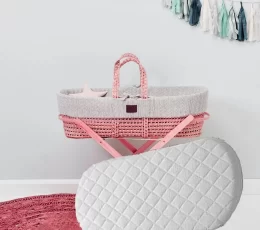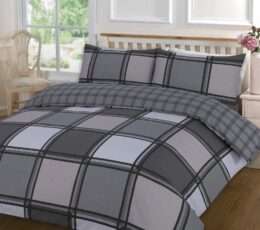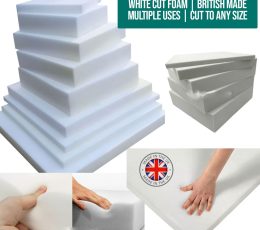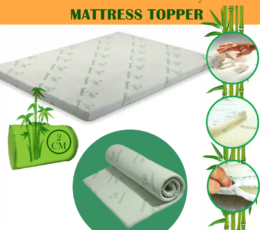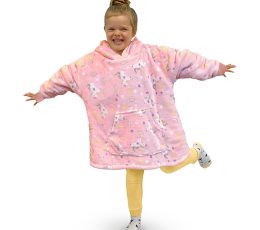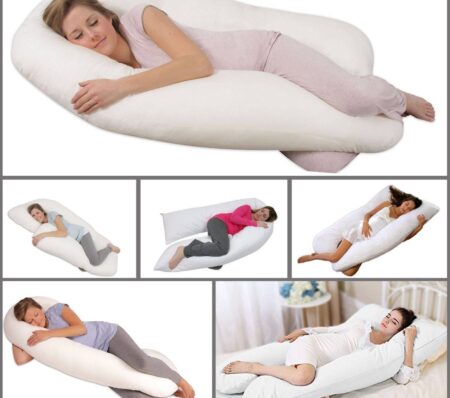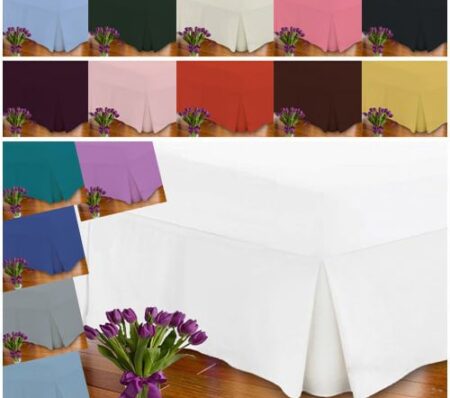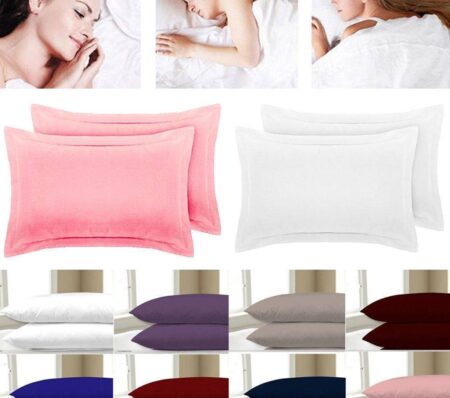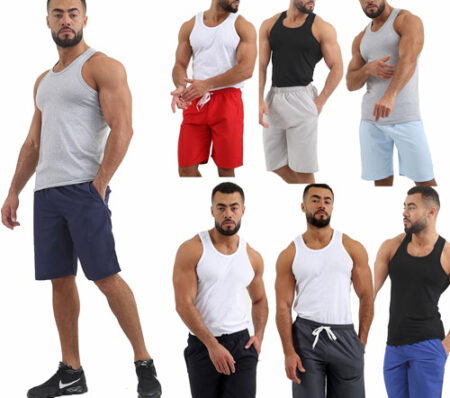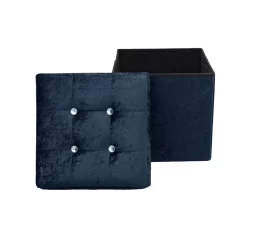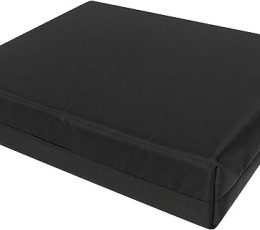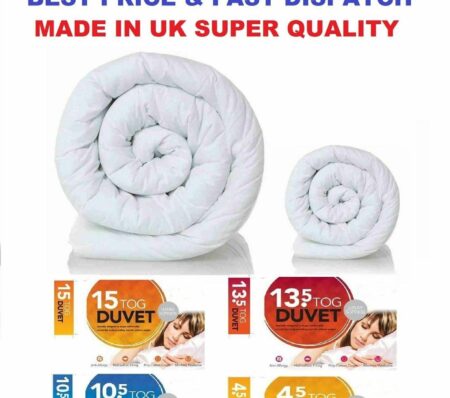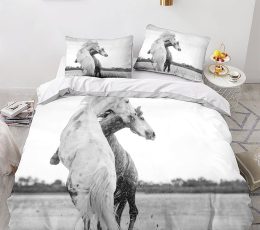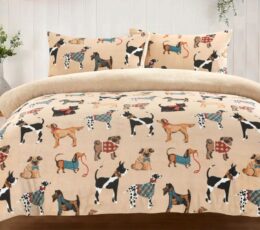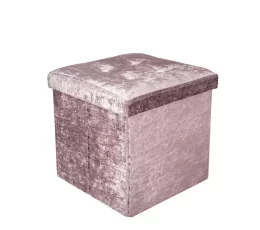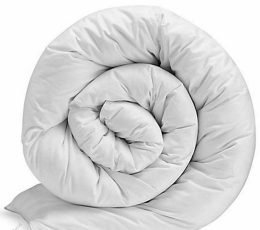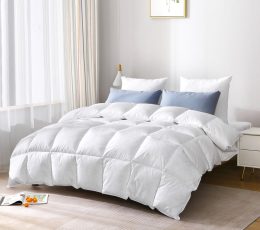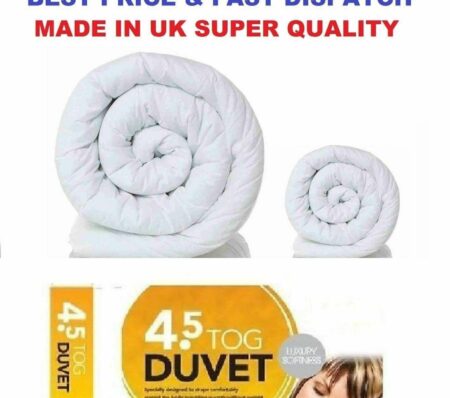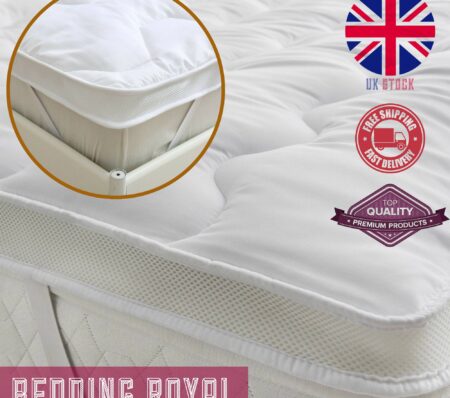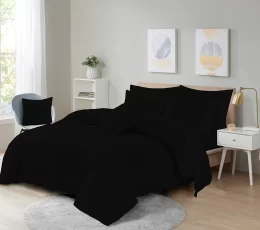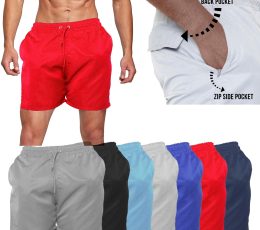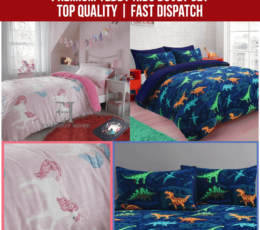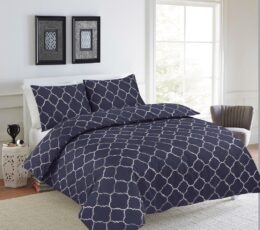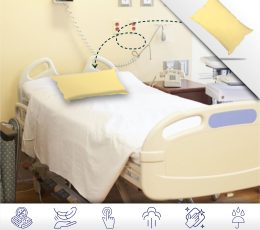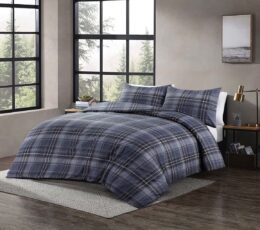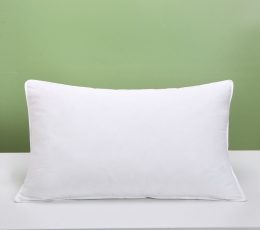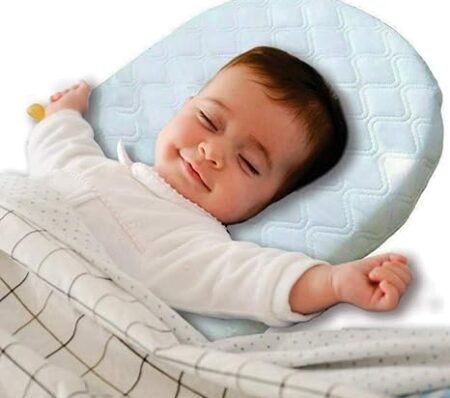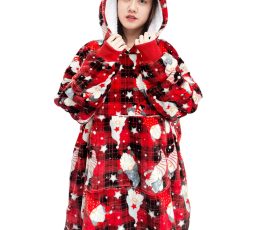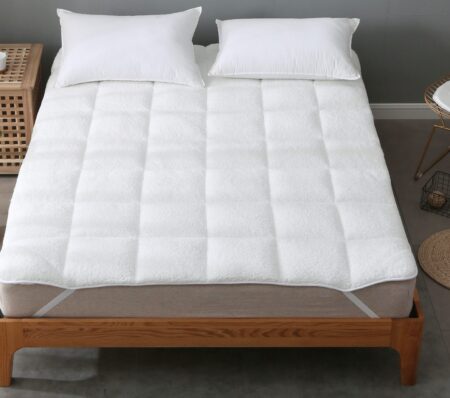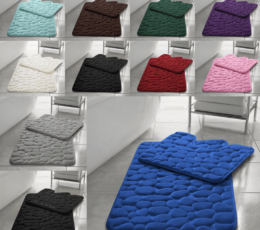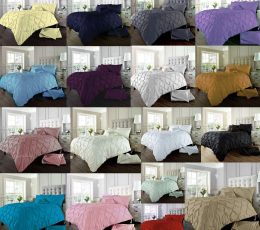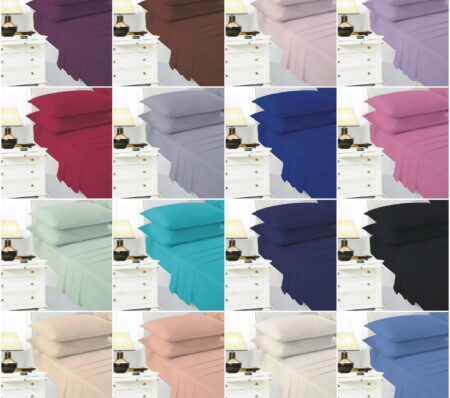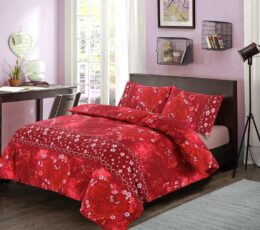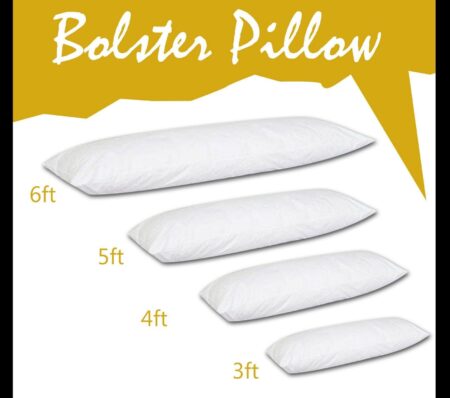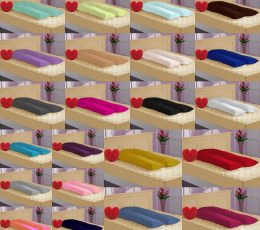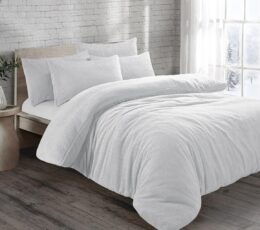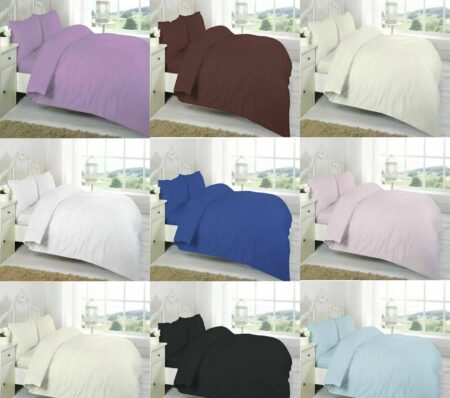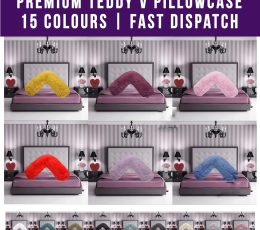A good day begins with a restful night’s sleep, and that starts with having the right pillows. While we often pay attention to the lifespan of our mattresses, it’s equally important to consider the condition of our hotel quality pillows. Using the wrong pillows can lead to waking up feeling irritable, experiencing pain, or having overall poor sleep quality. Understanding your pillows and how to care for them can greatly benefit you long-term, ensuring their longevity and comfort.
Caring for and protecting your pillows should be consider with the pillow guide typically involves using a pillow protector and a pillowcase. Just like mattresses, pillows need covers too! Various options are available for pillow protectors, but we highly recommend using a zippered protective cover as your pillow’s first line of defense. A good cover can effectively block out dust mites, bedbugs, and other allergens while safeguarding your pillow from oil and dirt that may come into contact with your skin. Washing the cover at least once a month is advisable to ensure maximum protection.

What is a Pillow Protector?
A pillow protector is a specialized covering designed to encase a best pillows, providing an additional layer of defense against various elements that can compromise its cleanliness and lifespan. Typically made from materials like cotton, polyester, or microfiber, pillow protectors come in various sizes to accommodate different pillow dimensions.
The primary function of a pillow protector is to shield the pillow from stains, spills, dust mites, allergens, and other contaminants. Unlike pillowcases, which primarily serve aesthetic and comfort purposes, pillow protectors offer a practical barrier that enhances hygiene and prolongs the life of your pillows.
Is a Pillow Protector the Same as a Pillowcase?
While both pillow protectors and pillowcases cover pillows, they serve distinct purposes and offer different benefits. Understanding the differences is crucial for maintaining a clean and hygienic sleep environment as well as also take in to consideration which pillow you are using thick pillow or thin pillow as the size makes the difference while choosing the protector.
Pillow Protector:
- Functionality: Primarily designed for protection, a pillow protector is a barrier against stains, spills, dust mites, allergens, and other irritants.
- Material: Pillow protectors are typically made from tightly woven fabrics such as cotton, polyester, or microfiber, chosen for their durability and protective properties.
- Closure: Many pillow protectors feature zipper closures to securely encase the pillow and prevent contaminants from seeping in.
- Hygiene: By safeguarding the pillow against moisture and allergens, pillow protectors promote a cleaner and healthier sleep environment.
- Longevity: Using a pillow protector can significantly extend the lifespan of a pillow by shielding it from wear and tear.
Pillowcase:
- Aesthetics: Pillowcases are primarily chosen for their decorative appeal, as they come in various colors, patterns, and fabrics to complement bedding and décor.
- Material: Pillowcases are commonly made from soft and breathable materials such as cotton, linen, silk, or satin, prioritizing comfort and style.
- Closure: Pillowcases typically feature open ends or envelope closures for easy insertion and removal of pillows.
- Comfort: While pillowcases enhance the comfort of pillows by providing a soft and smooth surface to rest upon, they offer minimal protection against spills, allergens, or moisture.
- Maintenance: Pillowcases require regular washing to maintain cleanliness, but they do not provide the same level of protection as pillow protectors.
In summary, while pillow protectors and pillowcases cover pillows, they serve distinct functions. Pillow protectors prioritize protection and hygiene, while pillowcases focus on aesthetics and comfort and sometimes you just need to change the pillow and for that you have to know how often should you change your pillow.
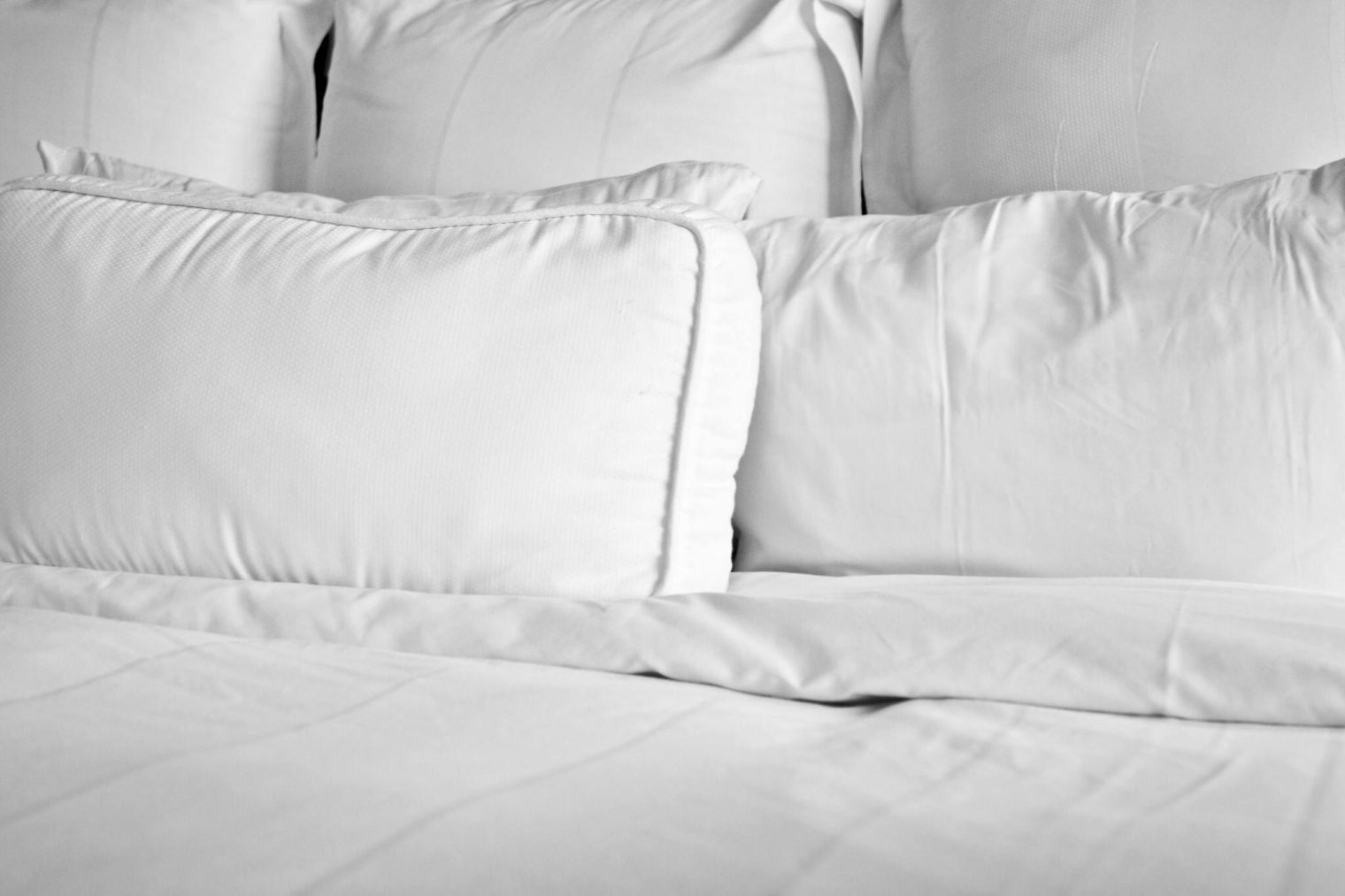
Benefits of a Pillow Protector
Investing in pillow protectors offers many benefits for a healthier and more comfortable sleep environment. Let’s explore some of the key advantages:
- Protection Against Allergens: Pillow protectors create a barrier that prevents dust mites, allergens, pet dander, and other irritants from infiltrating the pillow, making them ideal for individuals with allergies or respiratory issues.
- Stain and Spill Resistance: Accidental spills or stains from beverages, oils, or cosmetics can easily soil pillows. Pillow protectors act as a safeguard, repelling liquids and preventing stains from reaching the pillow’s surface.
- Hygiene Maintenance: Regular use of pillow protectors inhibits the accumulation of sweat, saliva, and body oils on pillows, reducing the risk of bacterial growth and unpleasant odors. This promotes a cleaner and more hygienic sleep environment.
- Prolonged Pillow Lifespan: By shielding pillows from wear and tear, moisture, and contaminants, pillow protectors help preserve their integrity and extend their lifespan. This ultimately saves money by reducing the frequency of pillow replacements.
- Easy Maintenance: Pillow protectors are machine washable, making them easy to clean and maintain. Regular laundering ensures that pillows remain fresh and free from allergens, contributing to better sleep quality.
- Versatility: Pillow protectors are available in various sizes to accommodate different pillow dimensions, including standard, queen, and king sizes. They are also compatible with pillow types, such as memory foam, down, or latex pillows.
- Peace of Mind: Knowing that pillow protectors protect your pillows provides peace of mind, allowing you to sleep soundly without worrying about allergens, spills, or stains compromising your sleep environment.
Types of Pillow Protectors
Cotton Pillow Protectors
Cotton pillow protectors are popular for their natural breathability and softness. Individuals with sensitive skin often prefer them due to their hypoallergenic properties. Cotton protectors provide a comfortable sleep surface while protecting against allergens and stains. They are easily washable and maintain their quality over time. This protector is used for the pillow that use in 5 star hotels to protect it the dust and make it ever hygenic.
Polyester Pillow Protectors
Polyester pillow protectors are known for their durability and affordability. They are resistant to wrinkles and shrinking, making them a practical choice for busy households. Polyester protectors offer good protection against spills and stains and are easy to care for, as they can withstand frequent washing without losing shape or effectiveness.
Waterproof Pillow Protectors
Waterproof pillow are designed with a specialized layer that prevents liquids from penetrating the pillow. They benefit individuals prone to nighttime accidents and households with young children or pets. Waterproof protectors effectively repel spills, sweat, and other fluids, keeping the pillow clean and dry.
Allergy-Proof Pillow Protectors
Allergy-proof pillow protectors are crafted from tightly woven fabric or specialized materials that create a barrier against common allergens such as dust mites, pollen, and pet dander. They relieve allergy sufferers by minimizing exposure to irritants that trigger symptoms like sneezing, congestion, and itching. Allergy-proof protectors are essential for maintaining a healthy sleep environment for individuals with allergies or asthma.
Bamboo Pillow Protectors
Bamboo pillow protectors are made from sustainable bamboo fibers known for their natural antimicrobial properties. They are hypoallergenic, breathable, and moisture-wicking, making them an excellent choice for those with sensitive skin or allergies. Bamboo protectors offer a soft and luxurious sleep surface while protecting against allergens and stains.

How to Wash a Pillow Protector
Proper washing techniques are essential for maintaining the cleanliness and effectiveness of pillow protectors. Follow these steps to wash your pillow protectors effectively:
- Read the Care Instructions: Before washing your pillow protectors, carefully read the manufacturer’s care instructions located on the product label. These instructions guide the recommended washing method, water temperature, and drying instructions.
- Pre-Treat Stains: Pre-treat stain the affected areas with a gentle stain remover or a mild detergent for stubborn stains or spills. Gently dab the stain with the cleaning solution and allow it to penetrate the fabric before washing.
- Machine Wash: Place the pillow protectors in the washing machine with similar colors and fabrics. Use a gentle cycle and cold or warm water to avoid damaging the fabric. Avoid washing pillow protectors with abrasive items that could cause pilling or tearing.
- Use Mild Detergent: Use a mild liquid detergent free from harsh chemicals or bleach to wash your pillow protectors. Avoid fabric softeners, which can leave a residue that reduces the protector’s effectiveness. If desired, add a cup of white vinegar to the rinse cycle to help remove any lingering odors and refresh the fabric.
- Dry Carefully: After washing, tumble dry the pillow protectors on a low heat setting or air dry them outdoors. Avoid high heat, as it can damage the fabric and cause shrinkage. Remove the protectors from the dryer promptly to prevent wrinkles and maintain their shape. If air drying, shake out the protectors and reshape them before hanging them to dry.
- Replace Promptly: Once dry, promptly remove the pillow protectors from the dryer or clothesline. Replace them on the pillows immediately to ensure continued protection against allergens and stains. Regular washing and replacing pillow protectors are essential for maintaining a clean and hygienic sleep environment.
FAQs
What is a pillow protector, and why do I need one?
A pillow protector is a removable cover that encases your pillow, providing an extra layer of defense against allergens, dust mites, spills, and stains. It helps extend the life of your pillow by keeping it clean and hygienic.
Are pillow protectors different from pillowcases?
Yes, pillow protectors serve a different purpose than pillowcases. While pillowcases primarily offer aesthetic appeal and a soft surface to rest your head on, pillow protectors focus on protecting against allergens, spills, and stains.
Do pillow protectors affect the feel of my pillow?
Pillow protectors are designed to be thin and breathable, so they should not significantly alter the feel or comfort of your pillow. For added comfort, many protectors are made from soft materials like cotton or microfiber.
Can I use a pillow protector with any pillow?
Pillow protectors are compatible with most pillow types, including memory foam, down, feather, and synthetic fills. They come in various sizes to accommodate different pillow dimensions.
Do pillow protectors make noise when I move on my pillow?
Most modern pillow protectors are designed to be noiseless, so they won’t disturb your sleep when you move around on your pillow. Look for protectors labeled “noiseless” or “quiet” for optimal comfort.
Are pillow protectors waterproof?
Some pillow protectors feature a waterproof layer that repels liquids and spills, while others are only water-resistant. Waterproof protectors are beneficial for individuals prone to nighttime accidents or for use in households with children or pets.
How often should I wash my pillow protector?
It’s recommended to wash your pillow protector every 1-2 months or more frequently if it becomes visibly soiled or stained. Regular washing helps maintain its effectiveness in protecting your pillow and promoting hygiene.
Can I machine wash my pillow protector?
Yes, most pillow protectors are machine washable. Follow the care instructions provided by the manufacturer, typically found on the product label or packaging, for the best washing practices.
Do pillow protectors help with allergies?
Yes, allergy-proof pillow protectors create a barrier against common allergens such as dust mites, pollen, and pet dander, helping to reduce allergy symptoms like sneezing, congestion, and itching.
Are pillow protectors suitable for sensitive skin?
Yes, pillow protectors made from hypoallergenic materials like cotton or bamboo are gentle and suitable for individuals with sensitive skin or allergies. Look for protectors labeled as “hypoallergenic” for added peace of mind.
In conclusion, pillow protectors offer many benefits that enhance pillows’ cleanliness, comfort, and longevity. Investing in high-quality pillow protectors and incorporating them into your bedding routine can create a healthier and more hygienic sleep sanctuary for optimal rest and how much pillows should you sleep with is important to know about the pressure the pillow feels and how does it affects the fluffyness of the pillow.

